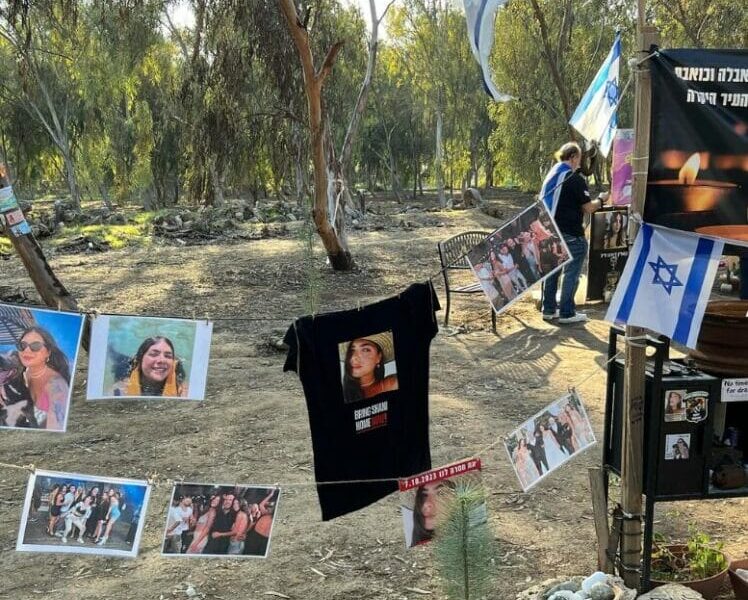Across the country many Jewish college students have reported that anti-Israel activity has created a hostile environment for Jewish students on some campuses. The hostility in California’s huge state university system prompted two University of California faculty members to cofound the AMCHA Initiative. The AMCHA Initiative is a nonprofit organization dedicated to investigating, documenting, educating about, and combating anti-Semitism at institutions of higher education in America.
“Jewish students struggle with hostility from faculty and student groups,” says Tammi Rossman-Benjamin, who cofounded AMCHA with fellow University of California faculty member Leila Beckwith.
The group’s website (amchainitiative.org) tracks support on campuses across the country for faculty members or student groups supporting an academic boycott of Israel or the Boycott, Divestment, Sanctions movement.
The organization’s map shows little BDS and academic boycott support in Arizona compared to many parts of the country. However, when a BDS bill was introduced in the Arizona State University Senate in March, we decided to ask the Hillel executive directors at Arizona’s two largest campuses to discuss their experiences regarding the climate on their campuses. Following are replies from ASU’s Debbie Yunker Kail and Michelle Blumenberg at the University of Arizona. Their replies have been edited for brevity and clarity.
The student senate at ASU recently rejected a divestment bill. Debbie, can you comment on both the fact that the bill was introduced and the support for Israel you saw defeat it? Michelle, has the University of Arizona had any similar activity on campus?
Debbie: On March 18, there was an anti-Israel divestment bill on the agenda of the ASU Senate. The bill asked the ASU Senate to recommend to the ASU Foundation a divestment from Caterpillar, Inc. This bill was part of a larger effort to support the BDS movement that is known to be anti-Israel. For the month leading up to this, pro-Israel student leaders from diverse backgrounds and campus involvement have been working with Hillel International, the Israel on Campus Coalition, the Israel Action Network, StandWithUs, the Consulate General of Israel in Los Angeles and AIPAC to gather resources and prepare in case this bill would come to fruition. They also worked hand in hand with Chabad and Jewish Arizonans on Campus. On the night of the senate meeting, student leaders organized a large student presence at the meeting and gathered statements against this bill from prominent ASU alumni, community leaders, campus leaders and public figures.
The outpouring of support to stand with Israel was inspiring. Student leaders lobbied senators prior to the meeting and proactively engaged their peers to realize that the complexity of the conflict in the Middle East cannot be addressed by a bill that singles out one party.
Soon after the sponsoring senator introduced the bill, it was tabled indefinitely by the ASU Senate. This essentially kills this particular bill, meaning that it can never be brought up again in its current form.
Michelle: No. There were some rumblings a few years ago but not much since then.
In general have you seen any change in anti-Zionism on campus while you have been there?
Michelle: I have been at the UA since 1992. In general, there is very little anti-Israel activity here.
Debbie: Since my arrival in July 2013, I have seen some anti- Israel activity common to many college campuses these days. This includes things like this BDS bill and groups that try to convince the ASU community that Israel is an apartheid state.
Aside from these incidents, I have also seen a rise in activity trying to bring a deeper understanding of Israel and the Middle East conflict.
Have students on campus hosted any Israel events? If so, what events and what has the response been?
Debbie: Yes, there are 10-15 Israel events each semester at ASU. All are well received. Events include a weekly Hebrew speaking table where students learn about Israeli culture and practice Hebrew, Israel Sababa Week (see photo), biweekly Israel-themed “lunch and learns,” and speaker events.
Michelle: Yes. The response is always very positive. In the fall, our Jewish Agency Israel Fellow works with a student committee to hold our annual Israelpalooza event on the UA mall. Lots of students, faculty and staff attend to learn more about Israel, gather information on study-abroad opportunities in Israel, nosh on Israeli food, listen to Israeli music and more.
Have Jewish and Arab (or Muslim) students held any joint programs to promote understanding?
Debbie: Sun Devils are Better Together is a new interfaith student group this year at ASU. Students attended a conference through Eboo Patel’s Interfaith Youth Corps and have received training in interfaith and intercultural dialogue. Following that, students from many different faiths were invited to spend a Shabbat at Hillel. Jewish students are interested in future facilitated dialogue, and we are working with university administrators to explore options for this. They feel that the current approach to Israel through BDS and other tactics feels more about putting Israel on trial, and they would like to get to a point in the campus culture where dialogue is possible. This dialogue would focus on getting to know each other before tackling some of the harder issues.
Michelle: Yes. We held our annual Avi Schaefer Memorial Shabbat in mid-February and hosted about 15 Muslim students that evening. In addition, there is a small group of Jewish, Christian and Muslim students who are learning about each other’s religion over the course of a month-long project. Students have planned social gatherings in addition to attending each other’s religious services, which are followed by discussions.
Any other comments?
Debbie: I remain inspired by students’ dedication and thankful for community support now and always. Please know that our efforts to reject the senate bill were driven by a desire for increased dialogue outside of the senate floor.
Michelle: We hope that fostering relationships with other groups on campus will help to promote understanding. Our students are interested in creating relationships with students on campus using Israel as the springboard for discussion.





